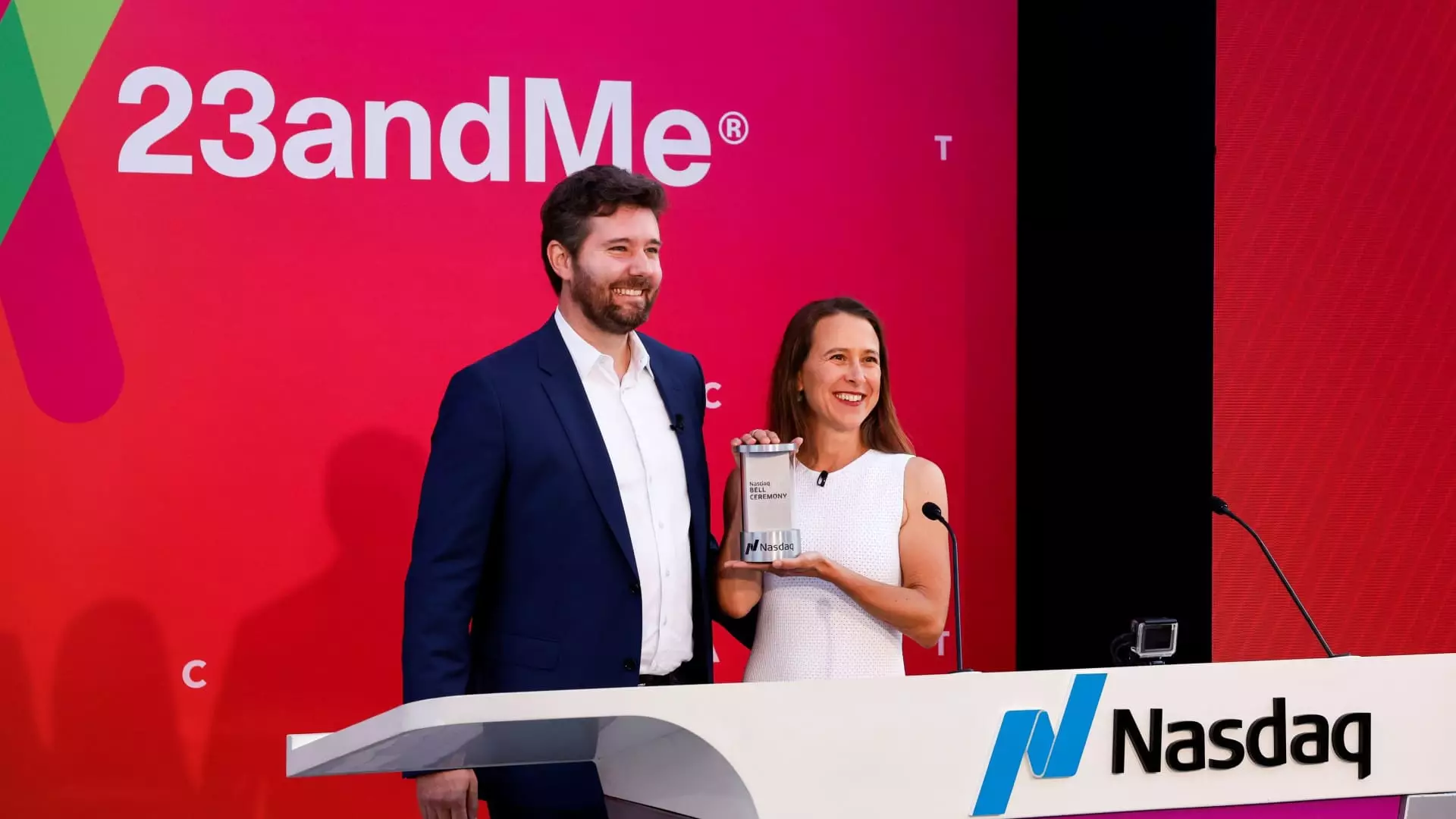Launched in 2006, 23andMe emerged as a revolutionary force in the field of genetic testing by adopting a direct-to-consumer model. The company capitalized on the growing interest in ancestry and health insights, making genetic information accessible to the average consumer. This democratization of genetic testing was not only groundbreaking but also financially lucrative for early investors and celebrity endorsers, who helped propel the company’s profile and reach. At its peak, the company commanded a staggering valuation of $6 billion, buoyed by significant investment and a promise to transform how individuals engage with their genetic data.
The vision set forth by 23andMe was bold. Beyond merely providing genetic testing services, its founder, Anne Wojcicki, aimed to leverage the vast database of genetic information for pharmaceutical advancements. In 2021, after going public with a valuation of approximately $3.5 billion, 23andMe positioned itself as a leader in drug discovery, establishing partnerships with major pharmaceutical firms. The optimism surrounding the company was palpable, as Wojcicki proclaimed that the potential for breakthroughs in both therapeutics and consumer offerings was imminent.
However, the buoyant atmosphere soon came to a grinding halt. As the economic climate turned, rising interest rates stymied funding opportunities and triggered a noticeable drop in sales. In a bid to adapt, 23andMe rolled out a premium subscription service in 2020, hoping to generate stable recurring revenue streams. Unfortunately, this initiative failed to engage customers as anticipated, revealing a fundamental flaw in the company’s strategy: the consumer base was not interested in ongoing financial commitments for genetic insights they previously purchased at a one-time cost.
The financial implications of these challenges were severe. In the fiscal year of 2023, 23andMe reported a staggering net loss of $312 million. By September 2023, the company’s stock had plummeted to below $1, raising serious concerns about its viability as a listed entity. This decline was not merely a result of external economic pressures but signified underlying structural issues within the company’s operational strategies and market understanding.
Compounding these financial troubles was a significant blow to consumer trust regarding privacy—a cornerstone of 23andMe’s business model. In October 2023, a hacker breach exposed sensitive data from nearly 7 million users, prompting unprecedented scrutiny over the security measures in place to protect customer information. This breach raised alarms about the ethical responsibilities companies bear in safeguarding consumer data, particularly in the context of genetic material that can have far-reaching implications.
In light of these events, Wojcicki’s commitment to retaining customer privacy became increasingly scrutinized. When questioned about the future of the company’s database in the event of a sale or acquisition, spokespersons indicated a strong preference for taking the company private. However, previous proposals to do so were thwarted by the company’s board, who expressed frustrations with Wojcicki’s vision. The breakdown of communication within the company’s leadership underscored deeper issues of governance and strategic alignment.
A Pivotal Moment Ahead
As of now, 23andMe faces a critical deadline: by November 4, it must maintain its share price above $1 and fill its board seats with capable members to prevent delisting from the Nasdaq. The resignation of all independent board members in September was particularly alarming, indicating a loss of confidence not only in Wojcicki’s strategic outlook but also the overall direction of the company. This tumultuous situation serves as a stark reminder of how quickly fortunes can change in the business world, especially for companies leveraging sensitive data in an evolving regulatory landscape.
Ultimately, the trajectory of 23andMe offers valuable lessons on the importance of adaptability in strategy, the need for a robust governance structure, and the paramount significance of consumer trust—factors essential for longevity in the competitive world of biotech and consumer services. The future remains uncertain for 23andMe, but its story is one that will resonate within the industry for years to come.

